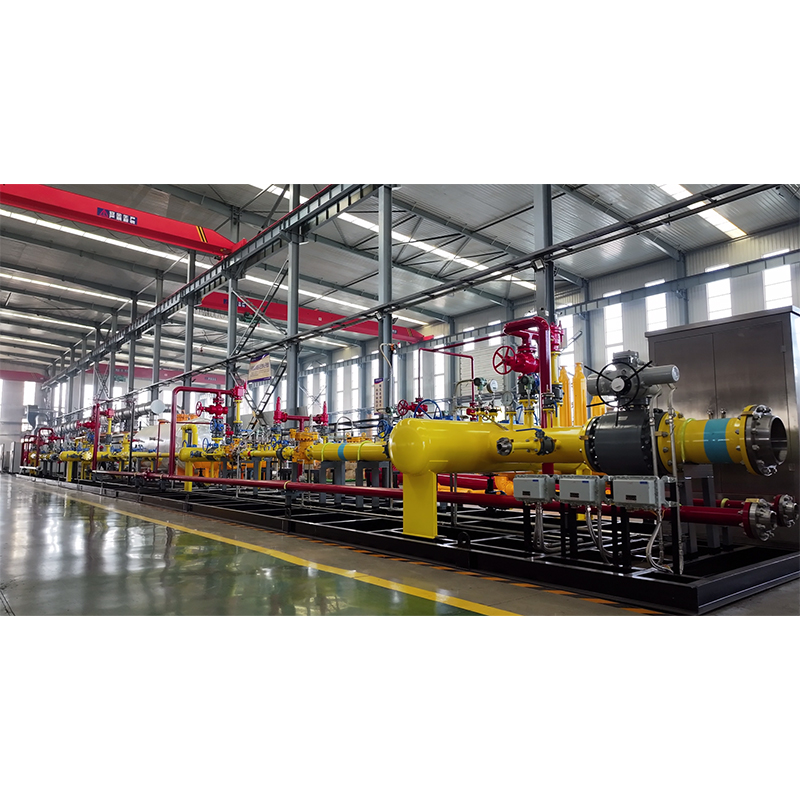
Dec . 04, 2024 16:31
Back to list
Pressure Pipeline Design and Optimization for Enhanced Efficiency and Safety
Understanding Pressure Pipes Importance, Types, and Applications
Pressure pipes play a pivotal role in various industries, serving as essential conduits for the transportation of fluids under pressure. These pipes are specifically designed to withstand the internal pressure exerted by the fluid they contain, ensuring safety and efficiency in fluid transmission systems. In this article, we will explore the importance, types, and applications of pressure pipes, as well as the factors that influence their selection and maintenance.
Importance of Pressure Pipes
The significance of pressure pipes cannot be overstated. They are critical components in a myriad of systems including water supply networks, sewage systems, oil and gas transportation, and chemical processing. The ability to safely transport fluids under pressure is vital for maintaining operational efficiency, safety, and environmental protection.
In industries like oil and gas, pressure pipes are used to transport crude oil, natural gas, and refined products from extraction sites to processing facilities and distribution points. Any failure in these pipes can lead to catastrophic spills, posing serious risks to both human health and the environment. Thus, the integrity and reliability of pressure pipes are of utmost importance.
Types of Pressure Pipes
Pressure pipes are categorized based on the materials used in their construction, the pressure ratings they can withstand, and their intended applications. Common materials for pressure pipes include
1. Steel Often used in the oil and gas sector, steel pipes are known for their strength and durability. They can handle high pressures and are resistant to various environmental conditions. However, they require protective coatings to prevent corrosion.
2. Plastic Polyvinyl Chloride (PVC), Polyethylene (PE), and Polypropylene (PP) are among the commonly used plastic materials. Plastic pipes are lightweight, corrosion-resistant, and flexible, making them suitable for water distribution and drainage systems. However, they may not withstand high pressures as effectively as metal pipes.
3. Ductile Iron This type of pipe combines the strength of iron with the ductility of steel. Ductile iron pipes are often used in water and wastewater applications due to their durability and resistance to corrosion.
4. Copper While more expensive, copper pipes are used in plumbing systems for hot and cold water supply due to their excellent thermal conductivity and resistance to corrosion.
.
Pressure pipes find applications in a wide range of sectors
أنبوب الضغط

- Municipal Water Supply Pressure pipes are integral in transporting potable water from treatment plants to consumers. They must meet stringent quality standards to ensure the safety and reliability of the water supply.
- Wastewater Management In sewage systems, pressure pipes are utilized to transport wastewater to treatment facilities. They are designed to handle the corrosive nature of sewage and the pressures associated with sewage movement.
- Industrial Processes In manufacturing and processing plants, pressure pipes are employed to transport chemicals, gases, and steam. Their design is crucial in preventing leaks and ensuring the safety of both the facility and its workers.
- Oil and Gas Transportation Pressure pipes are essential in the oil and gas industry for transporting crude oil, natural gas, and refined products. The high pressures and corrosive nature of these substances require specially designed pipes.
Factors Influencing Pipe Selection
When selecting pressure pipes, several factors need to be considered
- Pressure Rating The pipe must be able to handle the maximum internal pressure expected during operation.
- Material Compatibility The chosen material should be compatible with the type of fluid being transported to prevent corrosion or chemical reactions.
- Temperature Range Pipes must be able to withstand the temperature variations of the fluids being transported.
- Installation Environment Environmental conditions such as soil type, moisture levels, and external pressures also play a significant role in material selection.
Conclusion
Pressure pipes are indispensable in modern infrastructure, facilitating the safe and efficient transportation of various fluids across different industries. Understanding the types of pressure pipes, their applications, and the factors influencing their selection can significantly enhance operational safety and efficiency. As industries continue to evolve, the technology and design of pressure pipes will likely advance, further enhancing their performance and reliability in critical applications.
Latest news
-
Safety Valve Spring-Loaded Design Overpressure ProtectionNewsJul.25,2025
-
Precision Voltage Regulator AC5 Accuracy Grade PerformanceNewsJul.25,2025
-
Natural Gas Pressure Regulating Skid Industrial Pipeline ApplicationsNewsJul.25,2025
-
Natural Gas Filter Stainless Steel Mesh Element DesignNewsJul.25,2025
-
Gas Pressure Regulator Valve Direct-Acting Spring-Loaded DesignNewsJul.25,2025
-
Decompression Equipment Multi-Stage Heat Exchange System DesignNewsJul.25,2025

